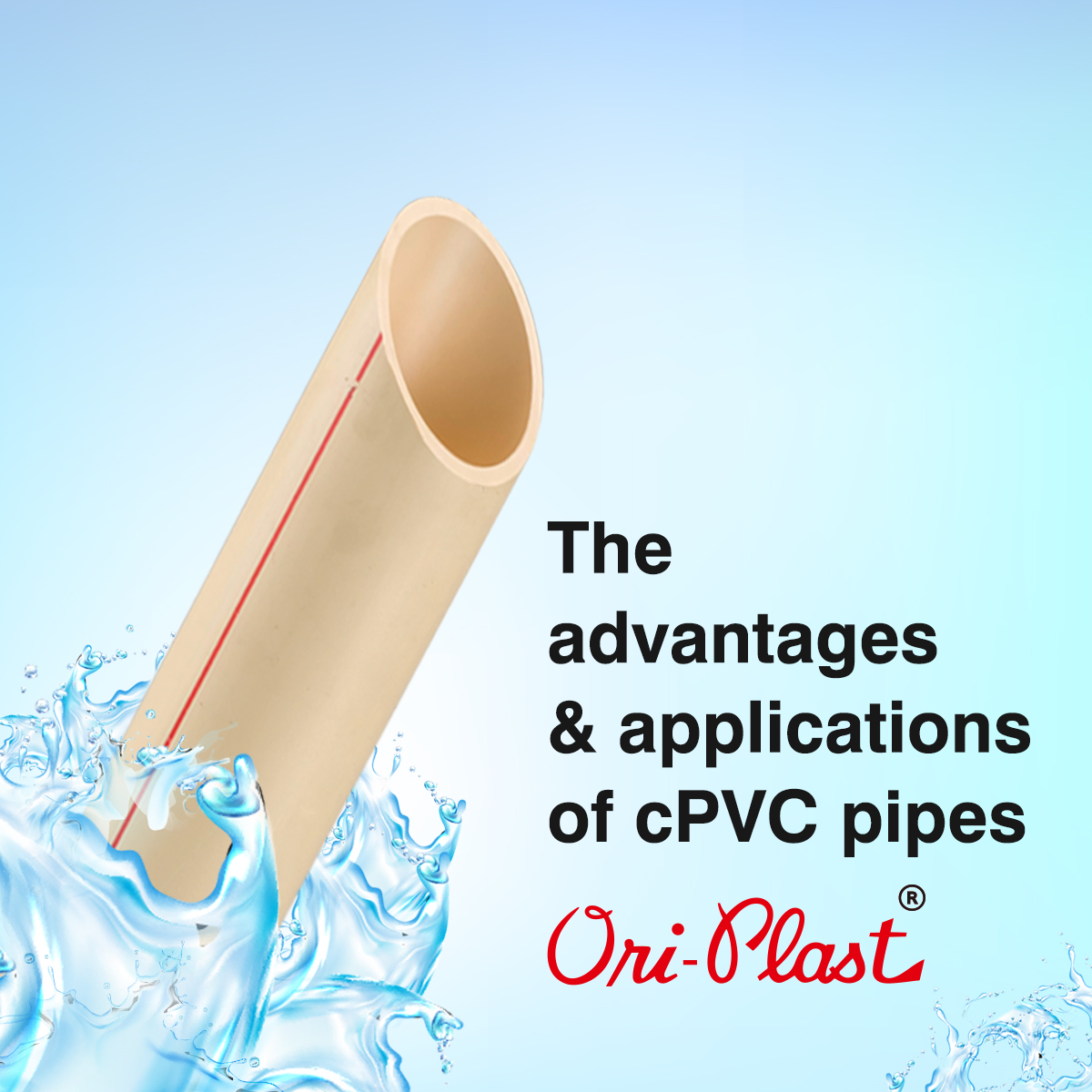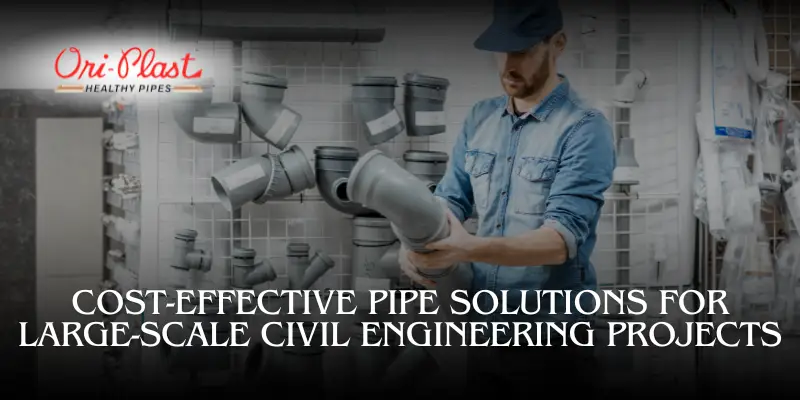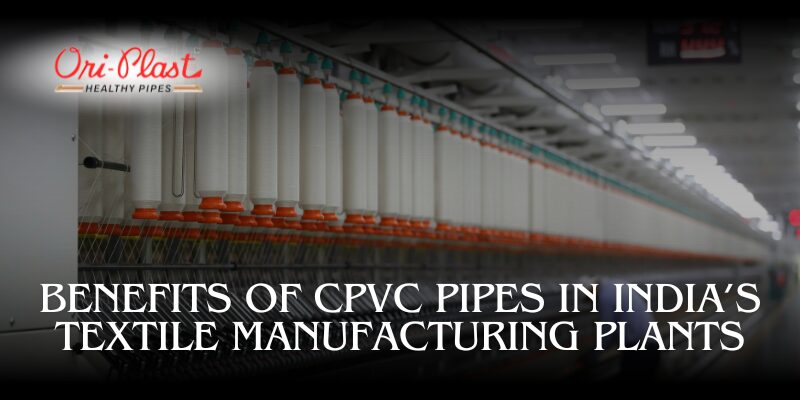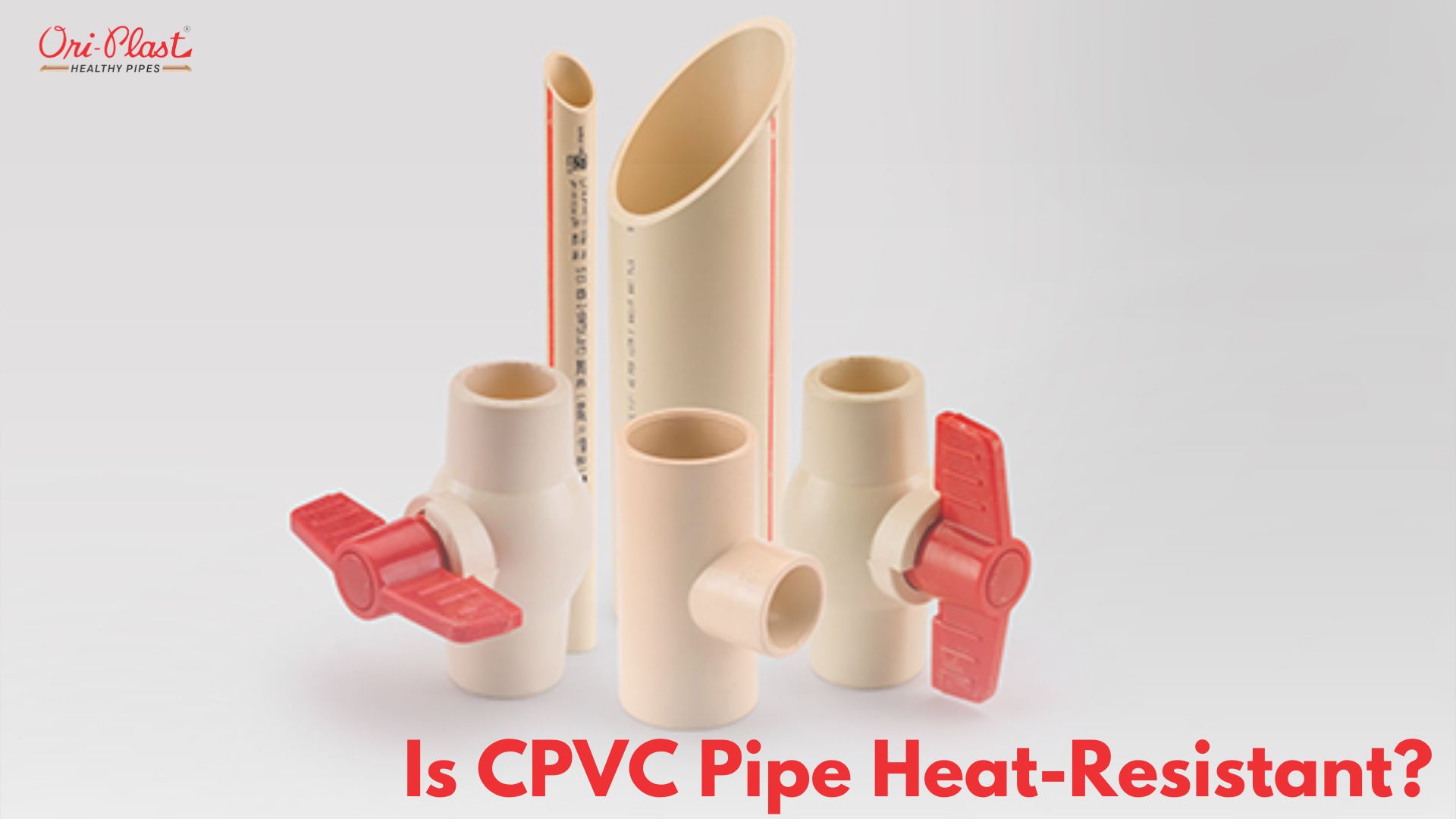The advent of technology has brought a huge change in piping systems. The popularity of metal and G.I. pipes for building pipelines has decreased after the introduction of PVC pipes. The benefits of using PVC pipes over G.I. pipes are tried and tested. But, with further advancement of technology and material science, many other variants of PVC have emerged in the market. One such variant is cPVC.
cPVC is the abbreviation for Chlorinated Polyvinyl Chloride. It is a thermoplastic material that is derived from the chlorination of Polyvinyl Chloride, i.e. by replacing a part of hydrogen with chlorine. In simple words, cPVC pipes are PVC pipes with additional chlorine in their composition. The chlorine content in the cPVC pipe can be as high as 60 percent, but it doesn’t adversely impact the water flowing through it. Rather it increases the toughness of the product.
Now, let’s discuss a few of the advantages of using cPVC pipes.
Durability
cPVC pipe is proven to last for over 50 to 75 years. After its invention, it was first installed in the USA in the year 1959. Some of the earliest installations are still functioning. It is strong as well as flexible and corrosion resistant. These qualities further add to the durability of cPVC.
Temperature resistance
cPVC pipes can channel hot water up to 93° Celsius. It can resist softening and weakening up to 115° Celsius. Thus, cPVC pipes can be regarded as ideal for hot water plumbing. Also, due to its internal structure, it can channel cold water smoothly. Bathroom cPVC pipe fittings are very popular nowadays.
Corrosion & chemical resistance
As stated earlier, cPVC pipes display the quality of corrosion resistance, both internally and externally. Also, as little to no sedimentation occurs on the inner wall of cPVC pipes, the water flow remains unaffected. It is absolutely safe to channel drinking water. Moreover, these pipes are formulated in such a way that they resist tampering caused by industrial chemicals in extreme temperatures.
Cost-effective & low maintenance
Although they are slightly expensive than PVC pipes, cPVC pipes are much more affordable than G.I. pipes. Being light-weight and easy to install, the installation cost of cPVC pipe is significantly low. Their low thermal expansion quality ensures less heat loss. As these pipes are leak-proof and promote minimal bacterial growth, they don’t need much maintenance.
Following are the areas of application of cPVC pipes,
- Residential buildings – For indoor and outdoor applications in both hot and cold water systems.
- Commercial buildings – For low maintenance water supply piping systems.
- Hospitals & hotels – For ensuring continuous and uninterrupted round the clock supply of hot and cold water.
- Industrial units – For use in chemical plants including fire fighting systems through sprinklers.
Being one of the top cPVC pipe manufacturers in India, Ori-Plast manufactures the best in quality cPVC pipes. The pipes are adhered to the standards of ASTM F441/F441M and IS 15778:2007. The sizes range from 15mm to 150mm and the product range includes Class I/SDR 11, Class II/SDR 13.5, Sch 40, and Sch 80. We also manufacture cPVC fittings and solvent cement, which chemically fuse the pipe and fitting together at a molecular level.




